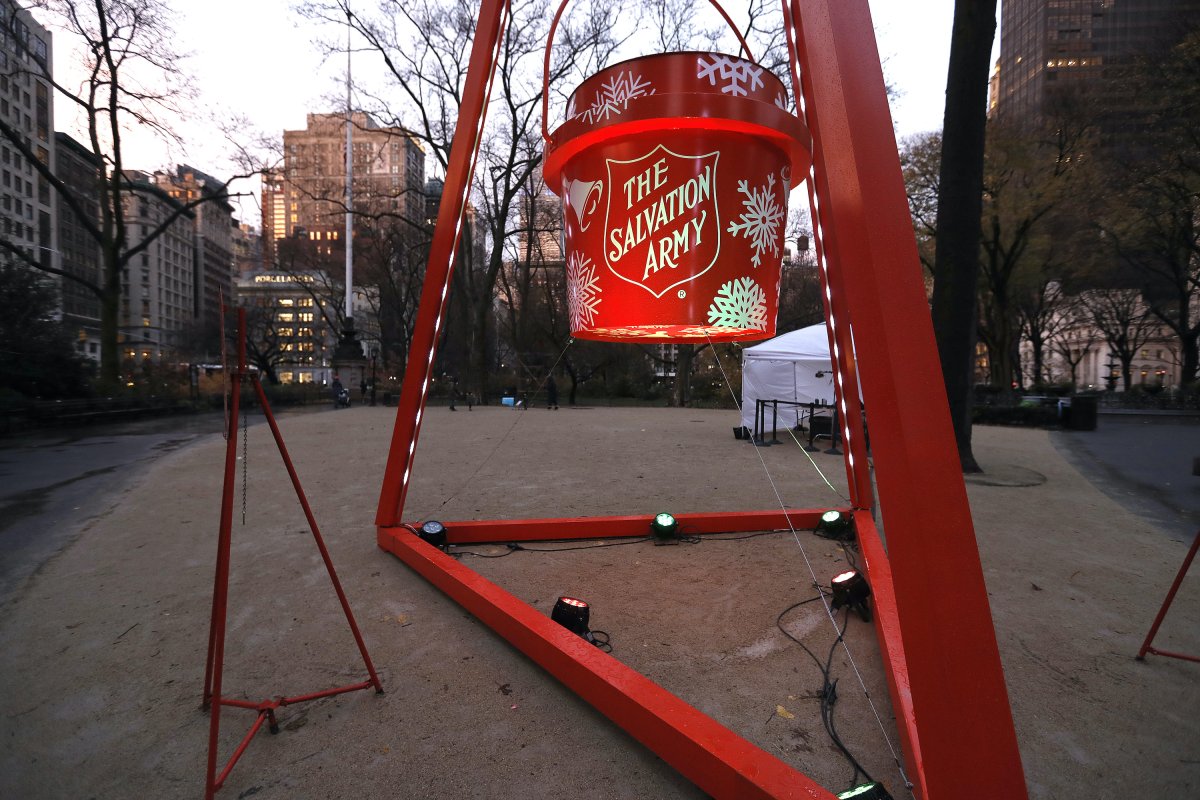At the end of 2020, America faced a pandemic, an uncertain economic future, and a major cultural divide. Yet charitable giving was up more than 5 percent over the previous year. Even with limited opportunities for in-person contact, fundraising tallies for the Salvation Army were up 30 percent over 2019.
This year, America continues to face economic uncertainty and a cultural divide. However, the latest figures from Giving Tuesday show about 13 percent fewer people are choosing to donate compared with last year.
So what changed?
Economics alone can't explain the difference. A Giving Institute survey shows that philanthropic giving is not always correlated with the economic state of the country. Giving doesn't always go down during recessions, for example. Although giving went down overall in 2008, in the previous three recessions giving went up or stayed flat. The philanthropic study group Blackbaud agreed: "Most recessions over the last 40 years have not significantly impacted the sector."
Meanwhile, giving is expected to go down in 2022, with national donations to the Salvation Army expected to decline for the second straight year, the Wall Street Journal reports. Giving to the Salvation Army declined last year by 8 percent, despite an 8 percent increase in consumer spending over that same period.
Giving philanthropically is not just about economics. It stems from belief in the organization that you're giving to. And recent political trends are undermining such belief.
Our American discourse is now advancing a narrative that the institutions to which we lend our charity and support are never sufficiently "woke." Schools are racist. Churches are sexist. Bigotry in charities is not too far behind.
A Kiva survey of more than 2,000 Americans found that 42 percent believed giving was "for the privileged." The irony is that such a phrase has always been true—yet the connotation surrounding "privilege" has changed.

It used to be that we would say "giving is a privilege" as if it were a good thing, to inspire us to see ourselves as blessed to be in a position to cheerfully give. Now, the word "privilege" stands for disrepute in today's social justice lexicon. It signals that we should be disgusted with the givers in our country, because they have the means to give. People now stay away from labeling themselves as "privileged"—and correspondingly lose sense of the responsibility that comes with privilege.
Instead, wokeness has made it easier to position oneself as a victim. According to a 2017 NPR poll, 92 percent of Black people and even a majority of white people believe their own group is discriminated against today.
Yet ask any church or charity leader: no one gives "cheerfully" out of a sense of victimhood. The biggest and most impactful gifts come when donors feel they are compelled by, yes, "privilege" to make the world and America a better place. They must believe in their own agency. Victimhood, on the other hand, is a "taker's" mentality that rewards the belief that one is caught up in unanswerable systemic forces. It is certainly not the mentality of a giver.
Another factor in giving is interpersonal trust. Data from the General Social Survey "indicate interpersonal trust and giving participation rates declined simultaneously between 2002 and 2014," according to a Lilly Family School of Philanthropy study. Americans are increasingly divided, lacking faith in the American experiment, and cynical about race relations in particular. People are less likely to give when they are skeptical about their neighbor.
Perhaps unsurprisingly, then, this theory can account for the increased giving during the COVID-19 pandemic: despite the division and protests, most Americans could feel a broader sense of togetherness over each American's effort to fight the pandemic and protect each other.
But now that the language of emergency has abated, Americans need a reason to give again. Our current landscape lacks a compelling one.
And, as charitable organizations increasingly deploy the language of social and racial justice to lure people into giving, they are also dividing Americans into feeling they are either "good" or "bad"—rather than fellow members of a single nation, meant to care for and serve one another.
To reestablish that unity—and the generosity that comes with it—our charities need to do a better job stating the unifying ideals on which our nation was founded and for which it strives. Our national discourse needs to recover the ideals of colorblindness, benevolence toward one's neighbor, and the American dream—which wokeness is increasingly denouncing—for there to be a compelling reason for Americans to open their pocketbooks to help a stranger once more.
Kenny Xu is the author of An Inconvenient Minority, which exposes racial discrimination against Asian Americans at elite universities like Harvard and Yale. He is the president of Color Us United, which advocates for a race-blind America.
The views expressed in this article are the writer's own.
Uncommon Knowledge
Newsweek is committed to challenging conventional wisdom and finding connections in the search for common ground.
Newsweek is committed to challenging conventional wisdom and finding connections in the search for common ground.
About the writer
To read how Newsweek uses AI as a newsroom tool, Click here.








